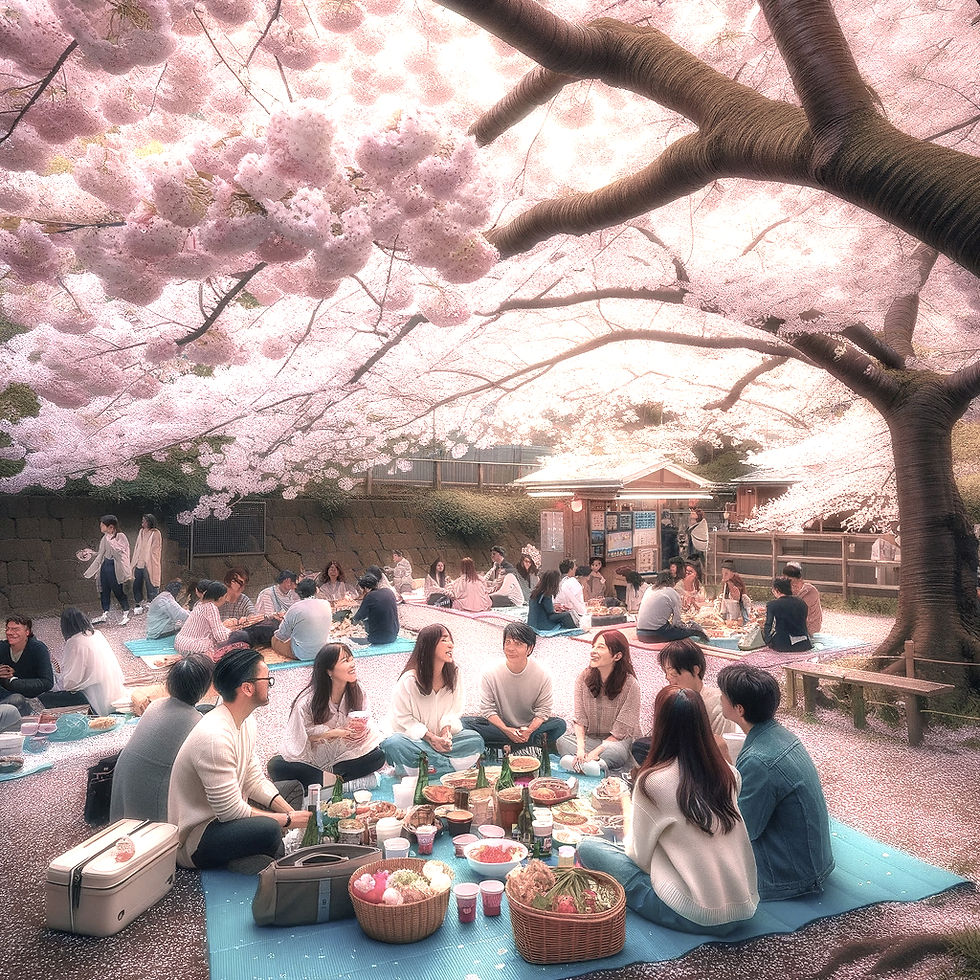Japanese culture: SDGs (Sustainable Development Goals) since ancient times!
- Hirokazu Kobayashi

- May 7, 2024
- 3 min read
Updated: 2 days ago
Hirokazu Kobayashi
CEO, Green Insight Japan Co., Ltd.
Professor Emeritus and Visiting Professor, University of Shizuoka
My late grandmother, born in 1908, believed God existed in all tangible things. This is thought to be due to nature belief (worship) and is the concept of the so-called Japanese “Eight Million Gods." If we replace “God'' with “soul," it leads to “animism (the attribution of a living soul to plants, inanimate objects, and natural phenomena)." I was worried about going to nursery or elementary school alone, but my grandmother taught me that I do not feel lonely because I have God on my shoulders. I was also taught that there is a god in each grain of rice, so I should eat every grain of rice, and I honestly believed in this belief. The gods on either side of a person's shoulders are called "Kushojin," a Buddhist concept that also seems to have origins in natural belief. This natural belief can be found in many different people and cultures worldwide. In ancient Greece and Rome, they personified natural forces and phenomena and worshiped them as gods. The Celts worshiped natural places such as forests, rivers, and lakes, and worshiped the spirits and gods that existed within them. Many Native American tribes believed in animism and totemism (particular natural objects). Hinduism believed that many gods symbolized various elements of the natural world. The Germanic peoples of Northern Europe created and worshiped gods associated with natural phenomena such as forests, rivers, mountains, and lightning. After AD (CE), these values were gradually weeded out by monotheistic religions such as Christianity and Islam.
Nature belief has been essential in Japan from ancient to modern times. In Shinto, natural areas such as mountains, forests, rivers, the sea, and rocks are worshiped as sacred. In particular, mountains are regarded as holy places, mountain gods and spirits are respected, and mountain faith is developed to pursue spiritual growth through mountain training and climbing. They also believed that gods resided in natural phenomena and elements and worshiped the sun, moon, wind, thunder, etc., as gods. Many seasonal festivals and events in Japan celebrate the blessings of nature and the changing seasons. Specifically, these include Shinto rituals and prayers in the New Year, cherry blossom viewing in the spring, Bon dances in the summer, and harvest festivals in the fall. Furthermore, much of Japanese culture and art uses nature as a motif, and the beauty of nature and the changing seasons are expressed in gardens, landscape paintings, haiku (short-form poetry), tea ceremonies, and more.
During the Age of Discovery, from the mid-1400s to the mid-1600s, Spain and Portugal undertook extensive worldwide expeditions under the guise of Christian missionary work. Christian missionary activities in Japan began in 1549 with Francisco Xavier (1506-1552). According to his letters and Luís Fróis’s (1532-1597) "History of Japan" (1594), the Japanese were literate, curious, knowledgeable, and logical at that time, making it challenging to proselytize. Later, Toyotomi Hideyoshi (1537-1598) issued the Batelean Edict (1587). In addition, during the Edo period (1603-1668), the reign of Tokugawa Iemitsu (1604-1651), the country was closed to the rest of the world (1639-1854). The fact that the country was not colonized after the arrival of the black ships of Matthew Calbraith Perry (1794-1858) in 1853 due to a national character that ranked with them is thought to be one of the reasons why the belief in nature has remained vital to the present day.
The Industrial Revolution, which began in England in the mid-1700s, marked a shift from 'animism,' a way of thinking that respected and utilized natural materials. While this revolution brought many benefits to humanity, it also led to the destruction of the natural environment and a realization that the earth's resources are finite. In 2015, the United Nations Summit adopted the SDGs, a global call to action for a sustainable future. Japan, with its long-standing tradition of nature belief, is uniquely positioned to lead this effort. The belief in the divine presence in nature, deeply rooted in Japanese culture, can serve as a guiding principle as we implement the SDGs. It reminds us of the importance of preserving our natural world and the need to strike a balance between progress and sustainability.




Comments